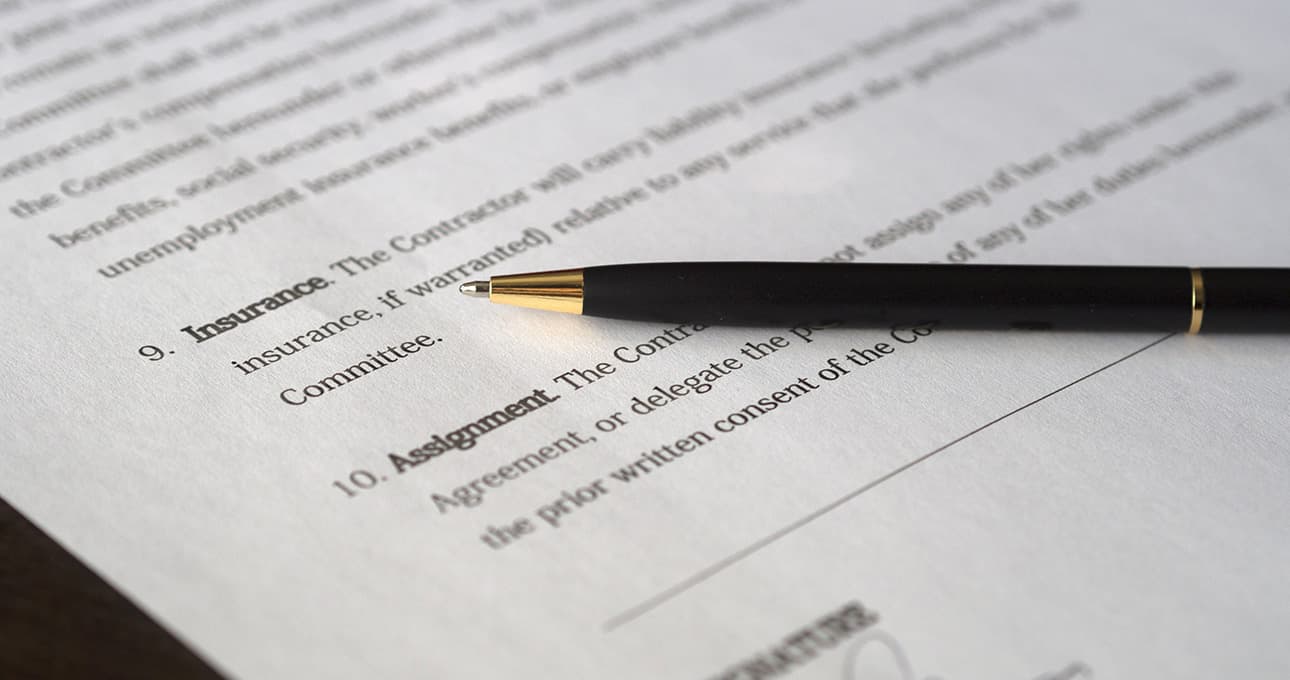- info@colombialawconnection.com
- +57 321 864 2275
A property title search in Colombia—locally known as Búsqueda de Título de Propiedad—is a vital legal process for anyone involved in buying, selling, managing, or inheriting real estate. This title search on property helps verify legal ownership, uncover liens or encumbrances, and confirm the property's legal history and compliance with regulations.
There are multiple reasons to conduct a title search for property in Colombia:
- Verify Legal Ownership: Ensure the seller is the legitimate owner with the right to transfer the property.
- Reveal Liens or Encumbrances: A title search property uncovers debts, mortgages, or legal claims that may affect future ownership.
- Understand Property History: Learn about previous owners and transactions to assess value and avoid hidden issues.
- Ensure Legal Compliance: Check if the property meets zoning, building, and municipal regulations.
- Reduce Risk: A thorough title property search minimizes fraud and prevents costly legal disputes.
- Support Estate Planning: Establish rightful ownership during inheritance or estate distribution processes.
- Facilitate Financing: Lenders often require a property titles search to approve mortgages or refinancing.
In Colombia, these searches are conducted through the Office of Public Instruments Registry (Oficina de Registro de Instrumentos Públicos), where all property-related documents are recorded. These public records offer vital details about ownership, legal status, and any existing claims.
A professional property title search ensures legal certainty and protects your interests—whether you're buying your dream home, investing, or managing inherited property.
What Do You Need for a Property Title Search in Colombia?
To perform a property title search in Colombia, you must gather specific details that allow legal professionals to accurately identify and review the property's public records. These records are stored in the Oficina de Registro de Instrumentos Públicos (Office of the Public Instruments Registry) and are essential for a reliable title search on property.
Here's the information typically required to conduct a title property search:
- Property Identification Number (Número de Matrícula Inmobiliaria): This unique code is the most important reference for any property titles search. It directly links to the property's legal record in the national registry.
- Property Address: The full physical address, including the municipality, department, neighborhood, or sector, helps ensure the title search property is performed on the correct asset.
- Owner's Name and ID Number: If available, the current owner's full name and national ID (or passport for foreigners) can assist in confirming ownership during the title search for property.
- Cadastral Reference (Referencia Catastral): This number ties into the property's fiscal and physical characteristics and is used mainly for tax purposes.
- Type of Property: Indicating whether the property is residential, commercial, industrial, or agricultural supports the accuracy of the property title search, especially if multiple records have similar details.
- Legal Description: Any formal documentation describing the property's boundaries, easements, or attached rights enhances the depth of the title search on property.
- Previous Transactions or Deeds: Historical ownership and transaction records help build a complete picture of the property's legal trajectory and flag any red flags in the title search property process.
By compiling this information, you enable lawyers or legal consultants to carry out a thorough and accurate property title search that safeguards your investment and ensures legal clarity.
Steps to Conduct a Property Title Search in Colombia
Performing a property title search in Colombia is a critical step to ensure that the property you're interested in is free from legal issues, such as hidden liens, ownership disputes, or regulatory violations. Here's a structured guide to help you carry out a title search on property effectively:
Gather Basic Property Details:
Start by collecting essential information:
- Property Identification Number (Matrícula Inmobiliaria)
- Full property address
- Cadastral reference
- Current owner's name and ID (if available)
These details are the foundation for a thorough title search property process.
Visit or Contact the Registry Office:
Go to the Oficina de Registro de Instrumentos Públicos (Public Instruments Registry), the authority responsible for property records in Colombia. Many offices now offer online services for remote access to documents needed for a title property search.
Request the Certificate of Tradition and Freedom:
This is the key document in any property titles search. It contains detailed information on:
- Ownership history
- Registered mortgages or liens
- Legal claims
- Property boundaries and other notes
Provide the Property Identification Number to obtain this certificate.
Analyze the Certificate Carefully:
Examine the document for:
- Gaps in ownership history
- Undisclosed encumbrances
- Inconsistencies in legal descriptions
This step ensures your title search for property is legally sound.
Check for Liens or Legal Claims:
Verify if there are any active liens, mortgages, or disputes affecting the property. These must be resolved prior to any purchase or transfer.
Confirm Compliance with Regulations:
Make sure the property complies with:
- Local zoning laws
- Construction and land use codes
- Environmental regulations
Failing to verify this can result in significant post-purchase issues.
Conduct a Physical Property Inspection:
Although not mandatory for every title property search, visiting the site can help detect encroachments, unauthorized structures, or other concerns not visible in documents.
Consult Legal and Real Estate Experts:
For a reliable title search on property, it's highly recommended to work with legal professionals familiar with Colombian real estate law. Firms like Colombia Law Connection can help you avoid costly mistakes.
Collect Any Additional Documentation:
Based on your findings, you may need:
- Zoning certificates
- Cadastral documents
- Utility bills or property tax records
Evaluate and Decide:
After compiling all relevant information, assess the property's legal standing and make an informed decision—whether to proceed with the purchase, renegotiate, or resolve legal issues first.
What If a Property Title Search in Colombia Reveals Issues?
If a property title search uncovers issues, it's essential to understand that many of these problems can be resolved—but they require careful handling and, often, legal intervention. Whether the issue is minor or complex, resolving it is key to securing a smooth and lawful real estate transaction in Colombia.
Here are common problems that may appear during a title search on property and how they can typically be addressed:
Outstanding Mortgages or Liens:
- Issue: The property may have unpaid debts such as tax liens or bank mortgages.
- Solution: These obligations must be settled before ownership can be transferred. Negotiation with lenders or creditors may lead to a lien release.
Boundary Disputes:
- Issue: The physical limits of the property may not match the legal description found during the title search property process.
- Solution: Commission a professional land survey and, if needed, pursue legal negotiation or mediation with neighboring property owners.
Errors in Public Records:
- Issue: Mistakes such as name misspellings or incorrect property boundaries may appear in registry documents.
- Solution: Submit correction requests with supporting documentation to the relevant registry office to ensure your title property search reflects accurate records.
Illegal or Defective Deeds:
- Issue: Past property transfers may have involved individuals without legal capacity (e.g., minors or people lacking legal authorization).
- Solution: Legal review and court action may be necessary to validate or invalidate parts of the ownership chain.
Fraud or Forged Documents:
- Issue: The property title may be compromised by fraudulent sales or forged signatures.
- Solution: A legal process is often required to challenge the fraud and affirm rightful ownership. Professional guidance is critical at this stage of the property titles search.
Undisclosed Restrictions or Covenants:
- Issue: Use of the property may be limited by unknown regulations or agreements.
- Solution: Investigate the nature and enforceability of these restrictions with legal counsel.
Claims from Missing Heirs or Previous Owners:
- Issue: Heirs or former owners may reappear, challenging your claim to the property.
- Solution: Court proceedings might be needed to resolve these disputes and confirm legal ownership through a title search for property.
Easements or Rights of Way:
- Issue: There may be unrecorded rights allowing others to access or use part of the property.
- Solution: Identify and legally interpret easement terms, which may require renegotiation or legal defense.
How to Handle Issues Found in a Title Search:
If your property title search uncovers any of the above concerns, consider the following steps:
- 1. Consult a Real Estate Attorney: A local expert can guide you through Colombian legal procedures and represent your interests.
- 2. Negotiate with Involved Parties: Often, disputes or debts can be resolved through mutual agreement.
- 3. Purchase Title Insurance: This can provide protection against unresolved or unforeseen title issues.
- 4. File Legal Actions if Needed: In more complex cases, filing a quiet title action or other court procedures may be necessary.
Legalizing Documents for Use in Colombia from Abroad
If you are living outside Colombia and need to legalize documents for use within the country, it is essential to follow the correct procedures to ensure your documents are properly apostilled or legalized. This step is crucial for various applications, including immigration to Colombia, business formation, and other legal processes under Colombian nationality law.
Steps to Legalize Documents for Use in Colombia
1. Visit a Colombian Embassy or Consulate
Contact the nearest Colombian embassy or consulate for assistance with the legalization or apostille process.
These offices can guide you on how to prepare and submit your documents in compliance with Colombian regulations.
2. Use Colombia's Official Government Portal
If your country does not have a Colombian consular presence, visit the official government portal at www.gov.co.
This resource provides detailed instructions for document legalization and apostille, ensuring your documents meet Colombian citizenship and legal requirements.
3. Ensure Documents Meet Colombian Standards
Documents must be properly apostilled or legalized according to Colombian law to be recognized for official use.
Common documents requiring legalization include birth certificates, marriage certificates, academic records, and financial statements.
United States - Embassy in Washington, D.C.
Website: https://estadosunidos.embajada.gov.co/
Phone: +1 202 387 8338
United Kingdom - Embassy in London
Website: https://reinounido.embajada.gov.co/
Phone: +44 20 7589 9177
Ensure Legal Certainty Before You Invest in Property!
Don't take risks with your real estate transaction. A professional property title search can protect you from legal issues, unexpected claims, and costly delays. Let our expert attorneys guide you through the process with clarity and confidence.
Get personalized legal support todayWe are here to help
Frequently Asked Questions About Property Title Searches in Colombia
? What is a property title search?
? How to do a title search on property in Colombia?
? Can I do a title search on property myself?
? Why is a title search property important before buying real estate?
? What happens if a property title search reveals problems?
? Is a property title search required for foreigners buying property in Colombia?
Expert Legal Services
+57 321 864 2275
Call us now
All calls are kept strictly confidential






